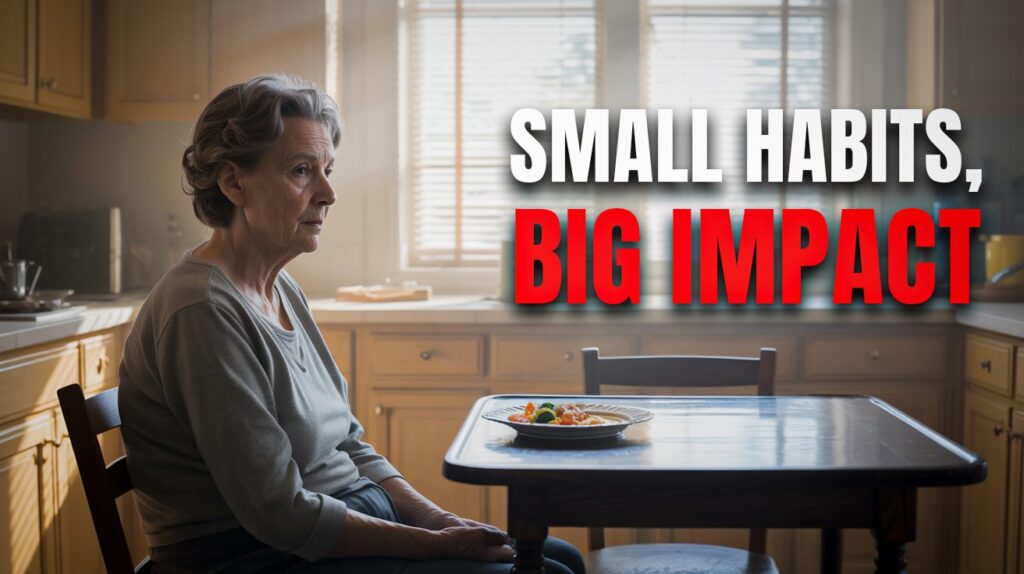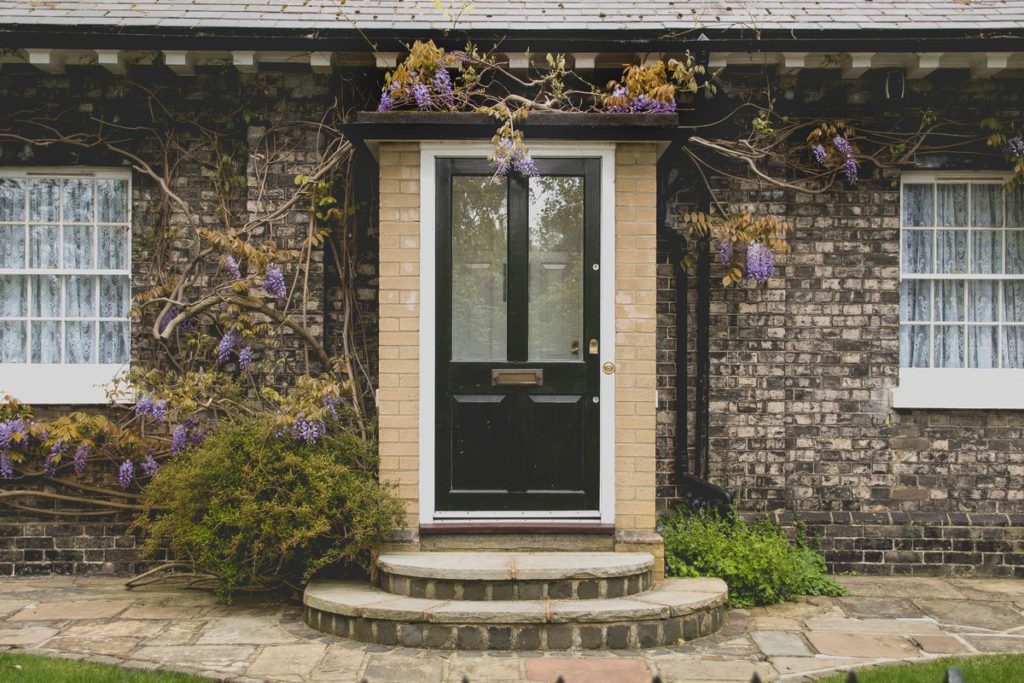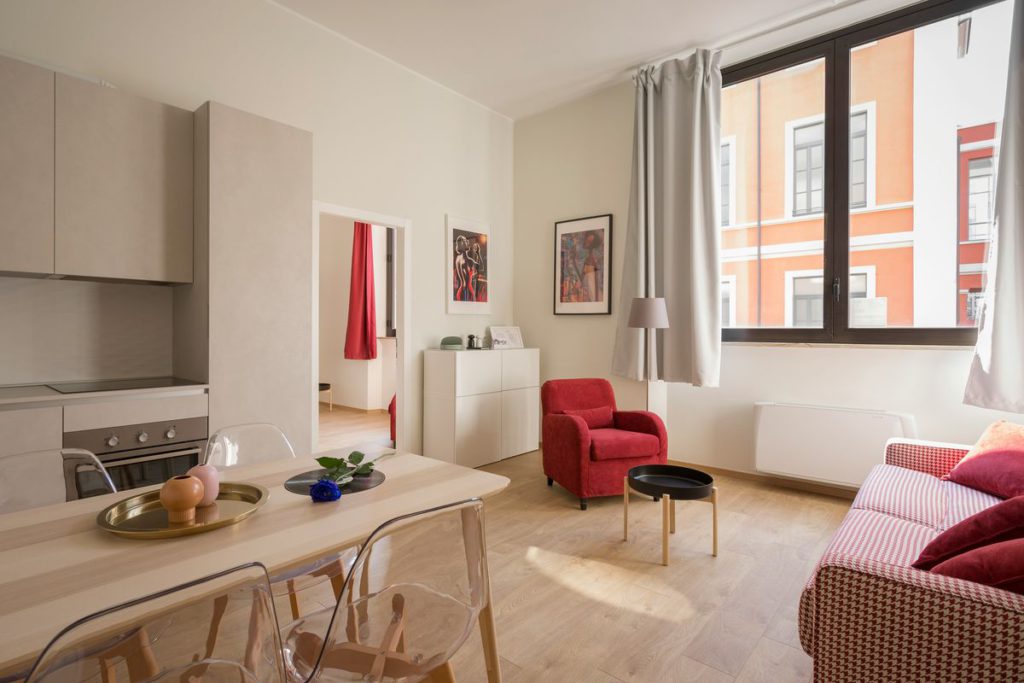
Nearly one in three older adults lives alone, yet most don’t realize how seemingly innocent daily habits can quietly undermine their health, safety, and happiness. Drawing from decades of medical practice and documented health risks, these ten pitfalls are surprisingly common—and surprisingly fixable. Small changes in routine, environment, and mindset can dramatically improve both physical wellbeing and quality of life for those aging independently.
10. Eating Standing at the Counter

Grabbing cold leftovers straight from the fridge while standing at the kitchen counter might seem efficient, but it’s like treating yourself as an afterthought in your own life. This habit signals to your brain that you’re not worth the effort of a proper meal, which can erode self-esteem and lead to poor nutrition choices. Research confirms that mindful eating—taking time to prepare and enjoy meals with proper dishware—improves both nutrient intake and psychological wellbeing.
Set a real plate, sit at your table, and treat each meal as a moment to honor yourself. Even a simple sandwich becomes more satisfying when eaten with intention rather than rushed while scrolling through your phone.
9. Keeping the TV On All Day

Having the television running from morning until bedtime might make your home feel less empty, but it’s actually crowding out opportunities for genuine connection and meaningful activities. This habit reduces motivation to engage authentically with life, replacing real social interaction with passive consumption. The constant chatter becomes white noise that prevents the quiet reflection and restful silence your mind needs.
Choose specific programs you actually want to watch, then turn off the screen. The silence might feel uncomfortable initially, but it opens space for reading, phone calls with friends, or simply enjoying your own thoughts.
8. Never Opening Your Front Door

When your world contracts to just the interior of your home, you lose the casual connections that can be lifesavers in emergencies. Neighbors are often the first to notice when something’s wrong—a newspaper piling up or lights that don’t go on at the usual time. Strong neighborhood ties are documented predictors of better health and longevity, yet many older adults inadvertently sever these connections.
Make a point of stepping outside daily, even briefly. Wave to neighbors, check your mailbox, or sit on your porch. These small interactions maintain your visibility in the community and remind you that you’re part of a larger world.
7. Living in Just One Room

When someone retreats to spending entire days in just the bedroom or living room, their world—and often their thinking—becomes increasingly narrow. This physical confinement mirrors and reinforces mental withdrawal from life’s possibilities. Moving through different spaces in your home encourages variety in activities and prevents the stagnation that comes from repetitive, confined routines.
Use your whole house. Eat breakfast in the kitchen, read in the living room, and maintain different spaces for different activities. Physical movement through your environment keeps both your body and mind more active and engaged.
6. Neglecting Personal Appearance

The logic seems sound: if nobody’s visiting, why bother getting dressed or fixing your hair? But this thinking creates a dangerous cycle where neglecting appearance leads to feeling invisible and unimportant, which then justifies further neglect. Maintaining even simple self-care rituals—getting dressed, brushing hair, wearing a favorite accessory—reasserts your value and presence in the world.
Establish a morning routine that includes basic grooming, regardless of your plans for the day. You’re worth the effort, and these small acts of self-respect have measurable effects on mood and confidence.
5. Believing “I’m Too Old for That”

The phrase “I’m too old for that” might as well be kryptonite for the aging brain. Scientific research confirms that neuroplasticity continues throughout life—your brain remains capable of forming new connections and learning new skills well into your later years. Shutting down opportunities for growth and learning accelerates cognitive decline and diminishes your sense of purpose and possibility.
Try one small new thing each month, whether it’s a different recipe, a phone app, or a hobby you’ve always been curious about. The goal isn’t mastery—it’s keeping your mind flexible and your sense of adventure alive.
4. Turning Your Home Into a Museum

When every surface displays mementos of the past and nothing can be moved or changed, your living space becomes a shrine rather than a home. While honoring memories is important, refusing to make room for new experiences can keep you emotionally stuck in loss and prevent the creation of fresh, meaningful moments in your current life.
Designate special places for treasured items, but also create space for new experiences and memories. Rearranging furniture occasionally or trying a new decoration can signal to your brain that life continues to evolve and hold possibilities.
3. Avoiding All Technology

Technology anxiety is understandable, but completely avoiding smartphones, tablets, or computers cuts you off from increasingly essential connections to healthcare, family, and community resources. Many services that support independent living—from telehealth appointments to grocery delivery—now require some digital engagement. Total avoidance can create barriers to the very resources designed to help you stay independent.
Start with one simple device or app that addresses a specific need, like video calling grandchildren or ordering groceries. Ask a tech-savvy friend or family member for a patient tutorial, or check if your local library offers senior technology classes.
2. Never Asking for Help

Pride in self-reliance is admirable, but refusing all assistance—whether it’s help with heavy lifting, transportation to appointments, or simply having someone check in occasionally—can lead to dangerous situations and accelerated decline. The goal is maintaining independence, not avoiding all human connection and support. Strategic acceptance of help can actually extend your ability to live independently.
Identify one or two areas where accepting help would significantly improve your safety or quality of life. This might be grocery shopping, yard work, or technology support. Remember that accepting help graciously often strengthens relationships rather than burdening others.
1. Staying Inside When Feeling Down

When sadness or discouragement hits, the natural impulse is often to withdraw further from the world. But isolation during emotional low points intensifies negative feelings and can spiral into more serious depression. Social connection and even brief exposure to natural light and fresh air have documented benefits for mood regulation and mental health.
Develop a plan for difficult days that includes at least one activity outside your home—a walk around the block, sitting in your yard, or a brief trip to the library. Having a predetermined strategy makes it easier to push through the inertia when motivation is low.
The common thread through all these habits is how they shrink your world when aging successfully requires the opposite—staying connected, engaged, and open to life’s ongoing possibilities. Anyone who’s watched a loved one thrive in their later years knows the difference these small daily choices can make. Independence doesn’t mean isolation, and taking care of yourself includes maintaining the connections and routines that keep life rich and meaningful.
Last modified: October 10, 2025







